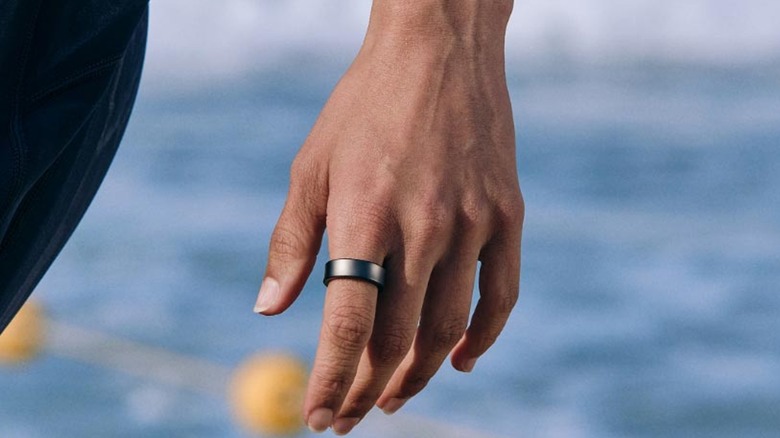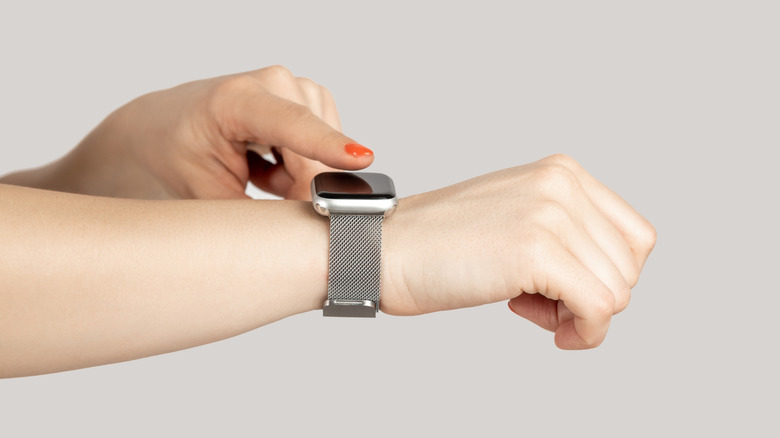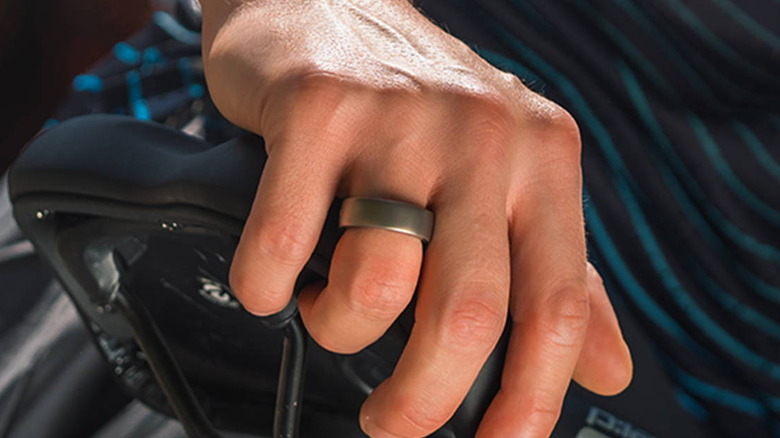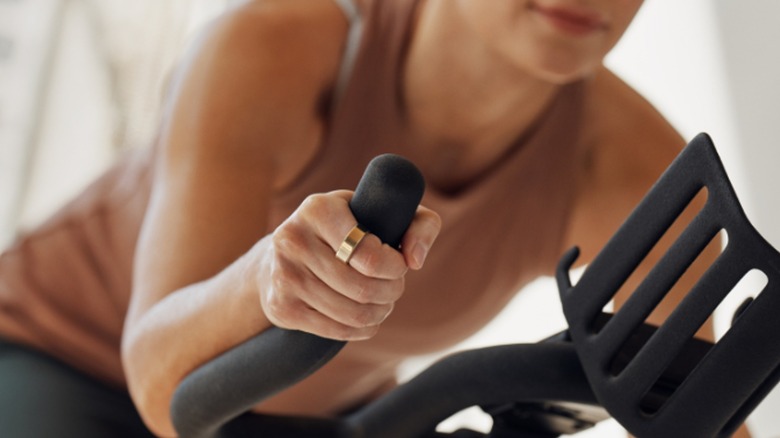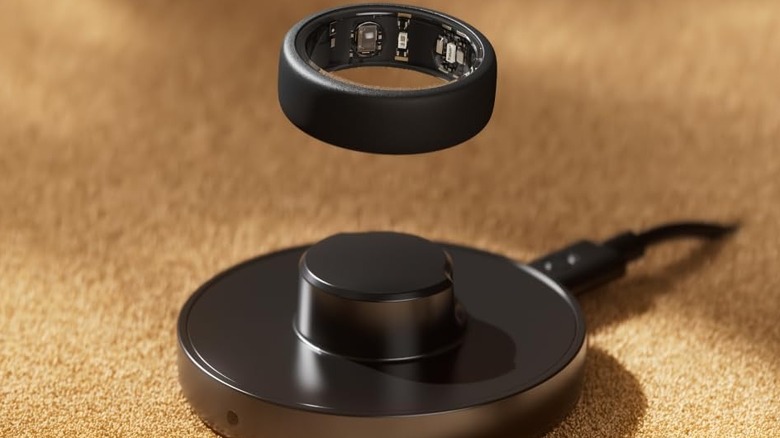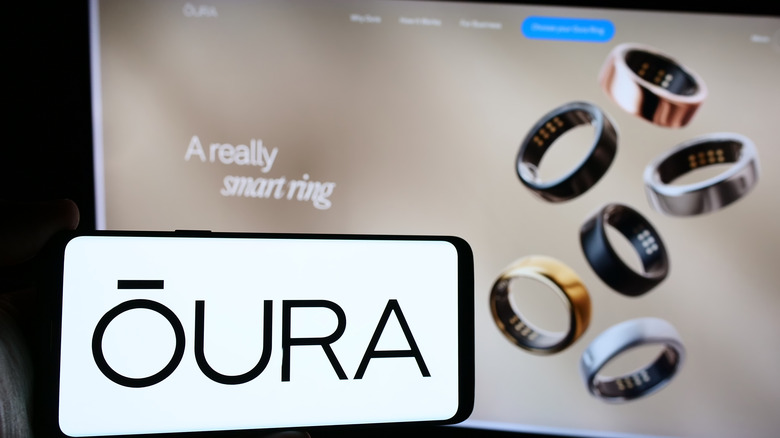Are Smart Rings Worth It? 5 Things To Consider Before You Buy
We may receive a commission on purchases made from links.
Wearable smart tech, despite still being a very young sector, is gradually rising in popularity and ubiquity. Smartwatches in particular are only a few steps behind modern smartphones developmentally– the first iPhone released in 2007, while the first Apple Watch released in 2015. Every major tech brand since then has been looking to cram as many features into their small devices as possible. A few notches behind smartwatches, however, there is another player in the wearables scene that's still getting its footing: smart rings.
Smart rings started slowly coming into vogue with the Oura Ring Kickstarter in 2015, but it took until 2024 before the big players like Samsung decided to throw their hat in. Over the course of this ephemeral period, multiple tech brands have taken a crack at the concept. The idea of what is effectively a magic ring that allows you to interface with your technology is naturally attractive in a fantastical way. In practice, though, the technology comes with a few small, yet vital quantifiers that keep it from having universal appeal. Before you run out and buy the first smart ring that catches the light in an aesthetically pleasing manner, there are several important questions and considerations to ruminate on.
Do you already wear any smart tech regularly?
There is a degree of overlap between the features of smartwatches and smart rings, which unfortunately means that if you're already used to the former, there may not be a reason to invest in the latter. If you already have a smartwatch that you make extensive use of and that's already synced up to your smartphone and other miscellaneous devices, buying a smart ring might be kind of be a waste.
That said, there are some smart tech ecosystems that can synergize both device types together. For example, Samsung's Galaxy Ring and Galaxy Watch can recognize each other and network their features to optimize their respective battery usage. In addition to that, even if you're not actively wearing it, it may be to your benefit to have a smart ring on standby for situations where a smart watch wouldn't be comfortable or stylistically appropriate, such as a formal event. It all depends on what you use your wearables for and how often you typically wear them.
Would wearing a smart ring be comfortable for your daily life?
This may seem like a minor concern, but it's actually one of the most important factors in deciding whether or not a smart ring is right for you. If you don't already wear a ring on a daily basis, proper fitting is a vital component. Both normal rings and smart rings need to sit on your finger in such a way that it fits firmly, but not so firmly that you can't take it off or that it hurts you.
Most smart ring brands offer sizing kits that allow you to get an idea of how the ring would sit on your finger on a given day, which is definitely a good starting point for research, but there are other factors to consider. For one thing, do you have a profession where you work with your hands a lot, particularly while wearing gloves? A normal ring can conceivably fit under a pair of work gloves, but smart rings tend to be on the chunky side, which means they may not fit in there. You might think someone who works with their hands would be perfect for a smart ring, but in actuality, the more you use your hands, the less optimal a smart ring would be for your lifestyle.
What kind of health information do you want from a smart ring?
One of the primary applications for just about any brand of smart ring is beaming you regular updates on your health. In the same vein as a smartwatch, a smart ring's regular contact with your skin allows it to scan your metabolic data and send it over to a paired smartphone for your perusal. There are two primary scenarios where you'd probably want this data: when you're sleeping, and when you're working out.
Most brands of smart ring are pretty good at measuring your heart rate, skin temperature, and other assorted statistics while you're sleeping, providing an overall sleep score in the morning. Plus, if you have to wear a device in bed, a ring is definitely less intrusive than a watch with a screen. In addition to that, smart rings can gauge similar statistics while you're in the midst of a workout. However, the precise scope of fitness data you get depends heavily on the brand of smart ring you're wearing. An Oura Ring 3, for instance, can track the duration and estimated calorie burn of a run, but it doesn't tell you about your running pace or heartrate zones. If you're planning on buying a smart ring to use as a fitness aid, you'll want to do extensive research on just how much information the ring in question provides versus how much you're looking for.
What other features do smart rings have?
Besides health tracking, what else does a smart ring bring to the table? For one thing, compared to a smart watch, smart rings generally have better battery economy. Even if you use your smart ring constantly over the course of a week, the battery should hold strong until the end of that week. It's a smaller device with simpler functions, so it doesn't burn through its charge as fast. You can also optimize that charge by leaving it in its charging cradle whenever you're not using it, even if it's just for a few minutes while you get ready in the morning.
Some higher-end brands like Samsung have begun tinkering with more advanced features in their smart rings, particularly gesture control. The newest version of the Galaxy Ring has a double-pinch motion detection function, which can be used to trigger simple functions on a paired smartphone like a camera shutter. These kinds of features are cool, but outside of very specific circumstances, it'd probably be more convenient to just tap your phone screen to take a picture. If you aren't buying a smart ring for the health tracking element, those kinds of advanced features may not yet be substantial enough to warrant the price tag.
Would you use it enough to warrant a subscription?
In addition to the base price tag, some smart rings like the Oura Ring also require you to pay a monthly subscription fee to make full use of the device's features and services. Granted, most smart rings do not do this, but the fact that some of them do is definitely worth thinking about, especially if you don't plan on making full use of a smart ring's full suite of features.
If you're interested in buying a smart ring that has some sort of subscription fee attached, you need to be completely sure that you're going to be using this thing extensively in your daily life. If you're not getting use out of every single feature that you're paying for, then why are you paying for it? If the idea of a monthly fee is unpleasant to you, you'll definitely want to double-check any smart ring you have your eye on to ensure that its features are all included in the cost of entry.
